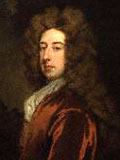The youngest son of the 3rd Earl of Northampton, Spencer Compton was educated at Trinity College, Oxford. He was originally elected as a Tory MP (1698-1710, 1713-1728), but rapidly switched to the Whigs (1701). He subsequently held various ministerial positions, as well as also being Speaker of the House of Commons (17 Mar 1715 - 17 Jul 1727). In 1727, he was the new King's preferred choice for the premiership in place of Sir Robert Walpole, but he doubted his own ability to hold such a post. As compensation he was sent to the House of Lords as Earl of Wilmington and was successively Lord Privy Seal and Lord President of the Council under Walpole. Despite this he did not oppose the 1741 censure motion against his leader. After the failure of the King's attempts to put the opposition in power following Walpole's fall in 1742, Wilmington was made First Lord of the Treasury [1], but he was eclipsed by his more active colleagues, such as Lord Carteret, who directed the foreign policy to keep Great Britain in the War of the Austrian Succession, fighting the forces of Prussia, France, and Spain. A significant domestic policy of Wilmington's administration was the passage of a bill to curb public drunkenness by increasing the tax on spirits, making liquor more expensive (Spirituous Liquors Act, 22 Mar 1743). He died in office on 2 Jul 1743. Biography source: [2, pp. 7-10] |

